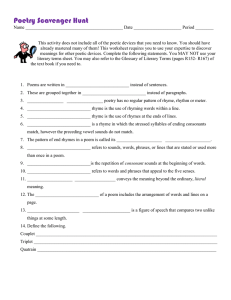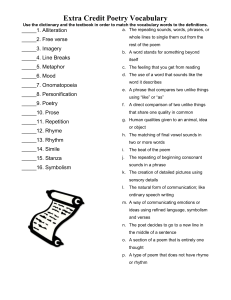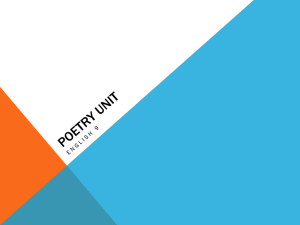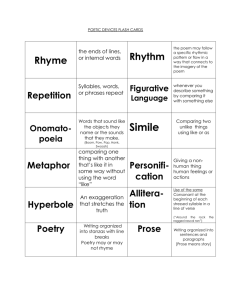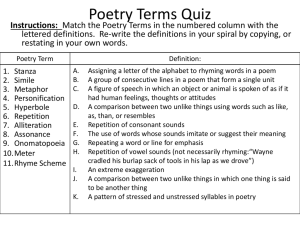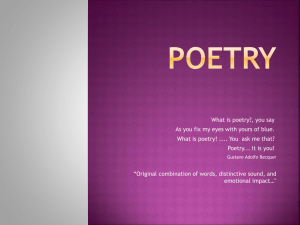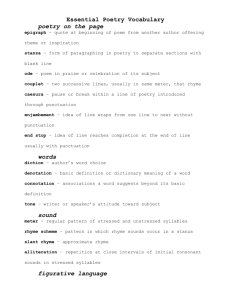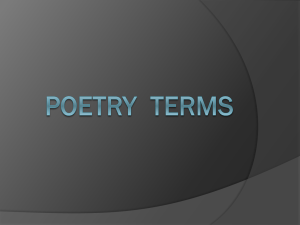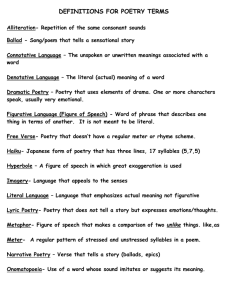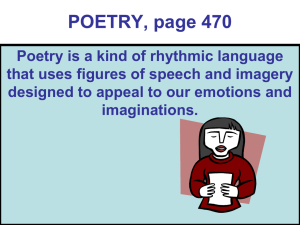Poetry vocabulary terms and definitions:
advertisement
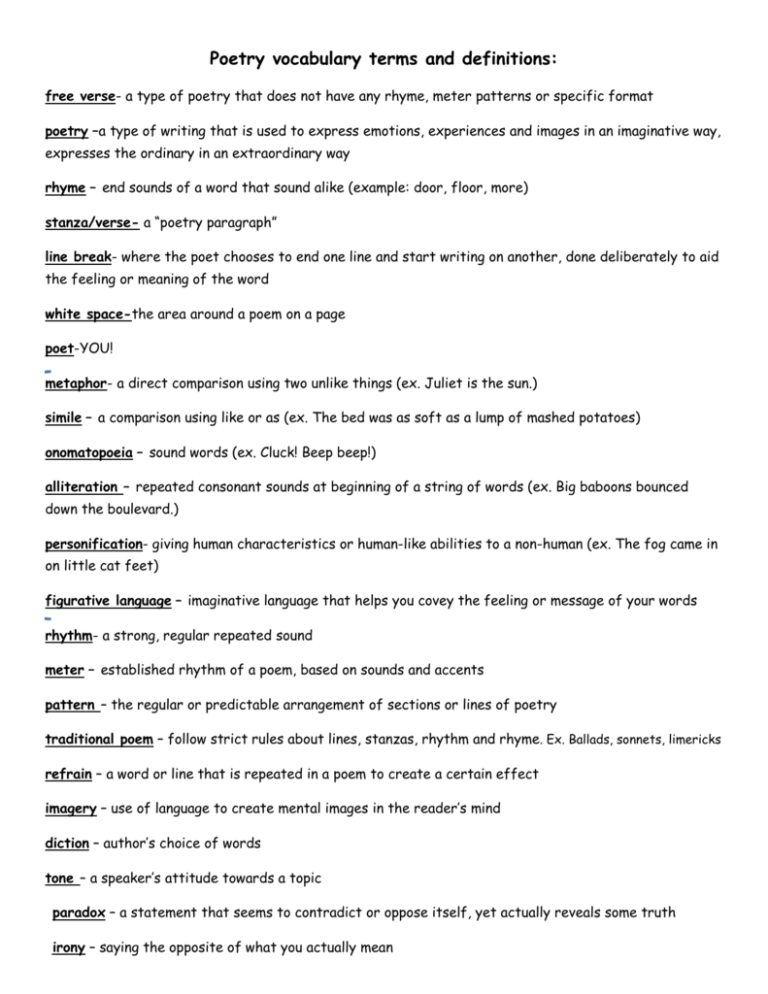
Poetry vocabulary terms and definitions: free verse- a type of poetry that does not have any rhyme, meter patterns or specific format poetry –a type of writing that is used to express emotions, experiences and images in an imaginative way, expresses the ordinary in an extraordinary way rhyme – end sounds of a word that sound alike (example: door, floor, more) stanza/verse- a “poetry paragraph” line break- where the poet chooses to end one line and start writing on another, done deliberately to aid the feeling or meaning of the word white space-the area around a poem on a page poet-YOU! metaphor- a direct comparison using two unlike things (ex. Juliet is the sun.) simile – a comparison using like or as (ex. The bed was as soft as a lump of mashed potatoes) onomatopoeia – sound words (ex. Cluck! Beep beep!) alliteration – repeated consonant sounds at beginning of a string of words (ex. Big baboons bounced down the boulevard.) personification- giving human characteristics or human-like abilities to a non-human (ex. The fog came in on little cat feet) figurative language – imaginative language that helps you covey the feeling or message of your words rhythm- a strong, regular repeated sound meter – established rhythm of a poem, based on sounds and accents pattern – the regular or predictable arrangement of sections or lines of poetry traditional poem – follow strict rules about lines, stanzas, rhythm and rhyme. Ex. Ballads, sonnets, limericks refrain – a word or line that is repeated in a poem to create a certain effect imagery – diction – tone – *paradox – a statement that seems to contradict or oppose itself, yet actually reveals some truth *irony – saying the opposite of what you actually mean *pap
